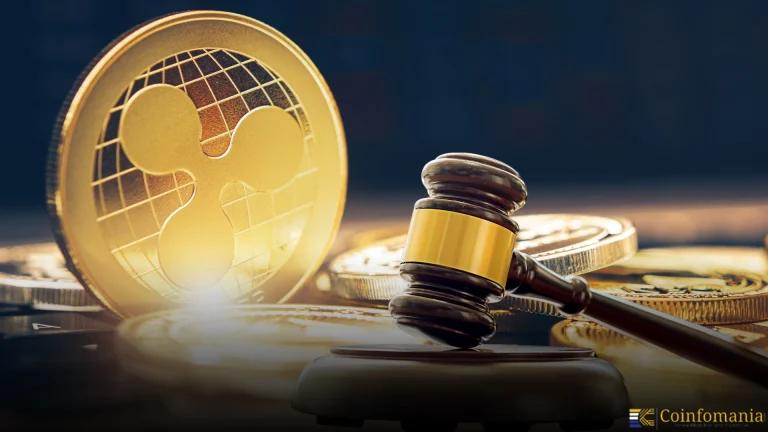Cryptocurrency Regulations in Ukraine
Ukraine is considered to be a crypto-friendly nation. The country has a tech-savvy population, high global adoption rates and progressive government support, all of which are aiding in the country’s enthusiastic adoption of cryptocurrencies. Starting in 2022, Ukraine will continue the legalization and regulation of digital assets, which is the way to develop innovations and […]

Ukraine is considered to be a crypto-friendly nation. The country has a tech-savvy population, high global adoption rates and progressive government support, all of which are aiding in the country’s enthusiastic adoption of cryptocurrencies. Starting in 2022, Ukraine will continue the legalization and regulation of digital assets, which is the way to develop innovations and protection of consumers.
For investors, startups, and crypto users, it’s helpful to understand what it is like to venture into this emerging regulatory environment in Ukraine. As new laws, licensing frameworks, and tax provisions are coming, anyone performing in or complying to enter the Ukrainian crypto market should have an eye on what is happening so as not to miss out on any chance.
Oversight of the crypto space is primarily shared between three main authorities:
- National Commission on Securities and Stock Market (NSSMC)
- National Bank of Ukraine (NBU)
- Ministry of Digital Transformation
Together, these institutions shape Ukraine’s cryptocurrency policy and regulatory infrastructure.
Historical Context
In the beginning, Ukraine’s attitude towards cryptocurrency was cautious. In 2014, the NBU declared Bitcoin a ‘money surrogate’ and warned about the possibility of using it as legal tender. Crypto fetched around for years in a legal gray area—it was tolerated but unregulated.
Most regulators started working on a framework to tackle what crypto can do and what it can cause in 2017–2018. Early legislation was drafted defining virtual assets and introducing a mechanism of taxation, and a cybersecurity working group was created.
This changed in September 2021, when the Ukrainian parliament passed the Law ‘On Virtual Assets’ which officially recognises digital assets. In March of 2022, President Zelensky signed it into law but revised the legislation in order to pave the way for a regulated crypto market in Ukraine.
Ukraine’s transformation from skepticism towards legalization allows us a glimpse into how the country is trying to strike a balance between innovation and having clear regulatory control on hand.
Regulatory Framework
Key Regulatory Authorities
- NSSMC: Oversees virtual assets, issues licenses, and sets regulatory policy.
- NBU: Handles digital assets with currency-like functions and monitors financial stability.
- Ministry of Digital Transformation: Coordinates digital innovation and crypto development policy.
Licensing & Registration
All Virtual Asset Service Providers (VASPs)—including exchanges, wallet providers, and custodians—must obtain licenses from the NSSMC. Ukrainian firms pay licensing fees of approx. €1,500–3,000, with higher fees for foreign applicants. Until enforcement begins, foreign platforms may still operate if they follow Ukrainian AML laws.
AML & KYC Requirements
Ukraine’s AML framework requires:
- KYC verification
- Transaction monitoring
- Suspicious activity reporting
- Adherence to FATF standards
Enforcement is coordinated by the State Financial Monitoring Service and financial regulators.
Taxation of Cryptocurrency
Profits from crypto trading will be taxed under Ukraine’s standard tax code:
- 18% income tax (individuals)
- 1.5% military levy
- Corporate tax for businesses at 18%
Crypto-to-fiat conversions trigger tax obligations, but simple wallet transfers are not taxable. Transactions may be exempt from VAT, aligning with EU practice.
Regulation of ICOs and STOs
Ukraine’s law distinguishes between:
- Utility tokens (regulated under the Virtual Assets law)
- Security tokens (may fall under securities law and require NBU/NSSMC oversight)
ICOs and STOs must comply with disclosure, licensing, and AML obligations, depending on token classification.
Ukraine’s Crypto Policies
Ukraine does not recognize crypto as legal tender, but it permits ownership, trading, and private transactions. Businesses can accept crypto through mutual agreement, with the value reported in UAH for accounting.
Crypto Mining
Mining is legal and unregulated. No license is required. As long as miners comply with general business and energy regulations, they are free to operate.
Government Initiatives
- CBDC Development: The e-hryvnia is being piloted by the NBU as Ukraine’s future central bank digital currency.
- Crypto Donations: During the war, Ukraine received millions in crypto donations, legitimizing crypto’s value in crisis response.
- NFT Fundraising: Government-sponsored NFT campaigns were launched to fund humanitarian and defense efforts.
Penalties for Non-Compliance
Unlicensed crypto operations or failure to meet AML standards can result in:
- Fines
- Business closure
- Criminal prosecution for severe violations (e.g., fraud, laundering)
Ukraine’s Approach to Crypto Innovation
Ukraine fosters crypto innovation through:
- Proposed regulatory sandboxes for startups to test blockchain projects under relaxed rules.
- Diia.City, a tech-friendly legal framework offering reduced taxes and flexible regulations for IT and crypto companies.
- Public-private collaboration: Ukraine has partnered with major crypto firms (e.g., Binance) for regulatory development and educational initiatives.
Crypto is increasingly integrated into retail, tech, and freelance sectors, with support from government-sponsored hackathons and blockchain pilots.
Notable Challenges and Issues
Regulatory Delays
Although the Law “On Virtual Assets” was passed in 2022, it remains unenforced due to pending tax code amendments. This has delayed full licensing and compliance implementation.
Institutional Resistance
Conservative elements in the government have slowed crypto liberalization, citing financial risks and wartime instability.
Enforcement Difficulties
Without operational licenses, oversight of foreign exchanges and DeFi platforms is limited. Pseudo-anonymity and the cross-border nature of crypto complicate AML efforts.
Public Perception
Initially skeptical due to scams and lack of clarity, public sentiment has shifted positively after successful crypto donations during wartime. Today, Ukrainians are cautiously optimistic, expecting clear rules and fair taxation.
Key Regulatory Trends and Future Outlook
Recent Developments
- Competing bills (No. 10225 and 10225-1) aim to finalize crypto tax laws and launch the regulated market by 2025.
- Ukraine is aligning with EU MiCA standards to harmonize regulations with Europe.
What’s Ahead
- Full implementation of licensing and tax regimes
- Legal recognition of crypto businesses under Diia.City
- Potential launch of the e-hryvnia CBDC
- Closer integration with EU crypto policy
Global Implications
Ukraine’s progress is likely to influence regional policy, particularly in post-Soviet states. Successful regulation could position Ukraine as a crypto hub in Eastern Europe.
Conclusion
Ukraine’s journey around crypto regulation has been one of transition from the tenuousness of the law to proactive laws. Ukraine is approaching a well-regulated and innovation-friendly crypto environment with government-endorsed crypto initiatives, emerging Virtual Assets law and future conformance with EU MiCA standards.
Given this, stakeholders in or looking to enter Ukraine’s market should stay close reading on licensing requirements, tax changes, and timing of enforcement in order to remain compliant and competitive. The crypto regulation is changing rapidly, and to be successful in the long term, you need to keep up with the latter.
Frequently Asked Questions (FAQs)
1. Is Bitcoin legal in Ukraine?
Yes, Bitcoin and other cryptocurrencies are legal to own and trade under the Law “On Virtual Assets.”
2.Can I use crypto to pay for goods or services?
Yes, by mutual agreement, though crypto is not legal tender. Prices must still be in hryvnia.
3. Do I need a license to operate a crypto exchange in Ukraine?
Yes. Once enforced, exchanges and custodial services must obtain a license from the NSSMC.
4. Is mining legal in Ukraine?
Yes. Mining is legal and does not require a special license.
5. Are crypto profits taxed?
Yes. Profits are taxed as income or capital gains (18% + 1.5% military levy), with VAT exemptions under consideration.
6. What is the e-hryvnia?
It is a planned central bank digital currency (CBDC) being developed by the National Bank of Ukraine.
7. Can foreign exchanges operate in Ukraine?
Yes, temporarily, if they comply with AML/KYC requirements. Full registration will be required once licensing is enforced.
8. Who regulates crypto in Ukraine?
The NSSMC and NBU, coordinated by the Ministry of Digital Transformation.
9. Does Ukraine allow ICOs or STOs?
Yes, but offerings must comply with either the Virtual Assets law or securities laws, depending on token classification.
10 Where can I get updates on Ukraine’s crypto laws?
Follow NSSMC, the Ministry of Digital Transformation, and crypto legal experts via official websites and news channels.
Follow us on Google News
Get the latest crypto insights and updates.
Related Posts

Ripple Highlights Custody as Key to $18.9T Tokenized Assets by 2033
Shweta Chakrawarty
Author

Hong Kong SFC Issues New Custody Rules for Crypto Platforms
Shweta Chakrawarty
Author

South Korea and Vietnam eye $150B trade despite Trump tariff
Shweta Chakrawarty
Author